HSP HISTORY Blog |
Interesting Frederick, Maryland tidbits and musings .
|
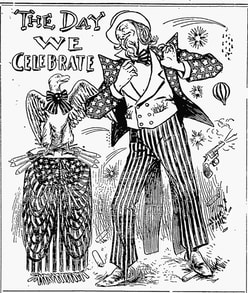 As we embark on the most popular day and week, of summer, I wanted to look back at Frederick, Maryland and its relationship to the July 4th holiday. For those on vacation, and others hosting or attending a friendly barbecue, Independence Day is generally characterized by the other 3 “R’s”: relaxation, reflection and revelry. Some have labeled July 4th, “The Sunday of the Nation.” The word that best sums up the feeling on this day should be contentment—content by having freedom, possessing unalienable rights and just plain being proud to be an American. And many times such as this year, additional contentment comes with having a three-day weekend to boot. It’s ironic that this holiday has roots going back to the specific day in 1776 where the mood of the general populous was one of discontent. The people of Frederick County, Maryland, and countless inhabitants of the other 12 colonies were not pleased with their governance under Great Britain’s King George III, son of our county/city namesake—Frederick Louis, Prince of Wales (1707-1751). 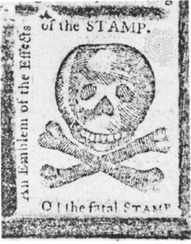 As a matter of fact, discontentment in Frederick County can be traced back to July, 1765 when word had reached America that King George would soon be instituting a tax on stamped paper in the coming fall. This blatant example of “taxation without representation” angered many, but perhaps none more than our famed “12 Immortals,” the county court justices of Frederick County headed by William Beatty. In late November (1765), they repudiated Britain’s Stamp Act and carried on the business of their court without using the newly required stamped parchment. This is considered the first formal protest against the crown by an official governmental body in the colonies. If the Battle of Lexington and Concord is considered “the shot heard ‘round the world,” then the 1765 Stamp Act Repudiation by the Frederick County justices can be considered the first “verbal shot.” If anything else, our lesser heralded “Paper Soiree” helped influence Bostonians to carry out another protest eight years later. This, of course, was the Boston Tea Party of 1773.
 William W. Fleming and his well-marked tobacco haven (circa 1893). William W. Fleming and his well-marked tobacco haven (circa 1893). Interestingly, I found July 4th to be the birthday of Mayor Fleming’s late father, a local physician. Could there be some subliminal reason reaching back into the mayor’s childhood, possibly associated with having to be silent or reverent on this sacred date? Could the mayor have had an aversion to pyrotechnics, or was there a fear of loud sounds? Again, another irony lies in the old adage "Where there’s smoke, there’s fire," as the name Fleming (at the time)was synonymously associated with a popular tobacco and snuff store located adjacent Frederick’s square corner in the first block of West Patrick. This was operated by a William W. Fleming, likely a cousin, but I haven’t been able to attain this relationship. (NOTE: I also am curious as to the familial connection to today’s Fleming Avenue, a very popular locale to spend July 4th.) In essence, this was the 4th of July equivalent of the movie Footloose. Many townspeople were livid, especially wayward teens and ornery children, not to mention more than a few uppity adults. Now in Mayor Fleming’s defense, this particular Fourth fell on a Sunday, aka Lord’s Day. Some decorum needed to be shown churchgoers, because firecracker hijinx was not just something that happened after dusk as we know today. In addition, things had gotten wildly out of hand over the years with the high frequency of firework-related accidents, maimings, etc., especially involving young people. The newspapers over the years could always count on these stories to help fill content. Fire risk was also a reality, and the mayor had been working hard for months on fire-related ordinances and strengthening support for the volunteer fire departments of Frederick. Lastly, who needs people shooting off firearms in town, especially after a long day of celebratory alcoholic libations? 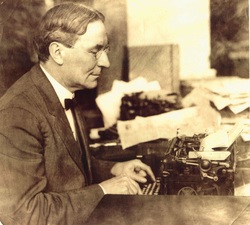 Folger McKinsey, "the Bentztown Bard" wrote for the Frederick News. The Elkton (MD) native gained greater fame with the Baltimore Sun, for which he worked for over 40 years until his death in 1950. Folger McKinsey, "the Bentztown Bard" wrote for the Frederick News. The Elkton (MD) native gained greater fame with the Baltimore Sun, for which he worked for over 40 years until his death in 1950. To the average Joe “Son of Liberty,” this rationale seemed to buck tradition, looking more like an infringement on God-given rights. Isn’t there a Constitutional amendment providing for the right for American citizens to spend Independence Day doing whatever the heck they pleased to show their patriotic devotion to flag and country? The famed "Bentztown Bard" Folger McKinsey wrote in the Daily News another signature "tongue in cheek ditty": "I believe in letting the eagle scream On the glorious Fourth of July; As firmly I believe that mankind, Would perish 'twere not for pie." 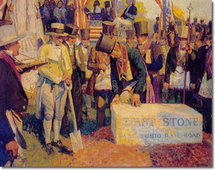 July 4th, 1828 Baltimore & Ohio Railroad groundbreaking ceremony in Baltimore with Maryland's Charles Carroll of Carrollton, the last surviving signer of the Declaration of independence. July 4th, 1828 Baltimore & Ohio Railroad groundbreaking ceremony in Baltimore with Maryland's Charles Carroll of Carrollton, the last surviving signer of the Declaration of independence. Now don’t get me wrong, the good far outweighed the bad when it came to July 4th. Most annual celebrations went off with a bang, and good times were had by all. One of the best took place on July 4, 1828 in which simultaneous groundbreakings were taking place in Baltimore and Georgetown respectively. These included the birth of two legendary transportation lines that would greatly impact Frederick commerce, agriculture and passenger travel. These were the Chesapeake & Ohio Canal and the Baltimore & Ohio Railroad. Both would reach Frederick in 1831. 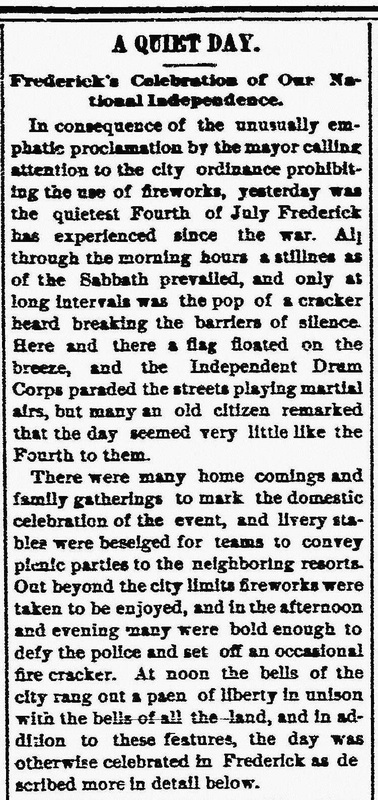 Frederick Daily News (July 5, 1893) Frederick Daily News (July 5, 1893) While many flame-loving residents escaped to surrounding areas to shoot off fireworks and guns, the event at City Hall was well attended, and equally received. The stage was beautifully decorated in red, white and blue, and collection boxes were strategically placed at the theater’s entrance to receive donations for a proposed monument to Francis Scott Key. This would become a reality five years later. Jacob Rohrback, a leading Frederick lawyer, Freemason and member of the Philomathean Society said the following in his speech that July 4th night: “We shall take pride in teaching our children the principles upon which the nation of sovereign states are based, for we must remember that it is our children and our children’s children who are to inherit what comes after us.” That July 4th, Capt. Q. S. J, Beckley and his able corps of assistants of the Frederick Riflemen, celebrated the Fourth in grand style at the Frederick Fairgrounds. Among the amusements held, highlights of the day included a one-mile bicycle race around the track and a baseball game. In nearby Middletown, things were relatively quiet, save for a nice parade through town that afternoon. A like ordinance against explosives had been enforced, but the youngsters took to wearing grotesque masks and waving flags as they took march in the parade with their brethren. After reading an account of a young doctor attending a party in nearby Jefferson, I certainly have a new view on what was considered “fireworks fun” during the period. It appears that this gentleman was lured in by a flirtatious group of young ladies working in tandem with a group of young hooligans. The boys attached, and lit, a bundle of fireworks to the physician’s frock coat. Luckily he escaped injury, but I can surely think of safer and less stressful ways to celebrate the independence of our nation. Luckily things got back to normal, "July 4th wise" when Mayor Fleming left office in 1895. So in closing, I wish you and yours a very happy Fourth! But please think twice before shooting off your bottle rockets, cakes, and Roman candles this holiday as the ordinance is still in effect within the corporate boundaries of Frederick. You can still enjoy sparklers without repercussion, both literally and figuratively. While we can demonstrate the proper spirit of patriotism in many ways, take a few minutes to remember why we continue to have the right to celebrate such an incredible annual event and explain this to a young person. Not to mention “the self-evident truths” that most of us get a paid day off work and are entitled to all the hot dogs, hamburgers and apple pie we care to eat. Talk about being content. Now let's make some noise for all Frederick County's patriots, past and present! History Shark Productions presents: Chris Haugh's "Frederick History 101" Are you interested in Frederick history? Want to learn more from this award-winning author and documentarian? Check out his latest, in-person, course offering: Chris Haugh's "Frederick History 101," with a 4-part/week course on Tuesday evenings in late August/early September, 2023 (Aug. 22, 29 &Sept. 5, 12).These will take place from 6-8:30pm at Mount Olivet Cemetery's Key Chapel. Cost is $79 (includes 4 classes).
In addition to the lecture class above, four unique "Frederick History 101 Walking Tour-Classes" in Mount Olivet Cemetery will be led by Chris this summer. These are available for different dates (July 11 & 25th, Aug. 8th & 23rd). Cost $20 For more info and course registration, click the button below! (More classes to come)
1 Comment
Virginia Boutin
7/4/2023 08:21:58 am
Chris, this was so well done. The entire article gave me a sense of pride that I am an American. The members of your class most benefit from your knowledge and love of your community,too.
Reply
Leave a Reply. |
AuthorChris Haugh Archives
February 2024
Categories |
Proudly powered by Weebly

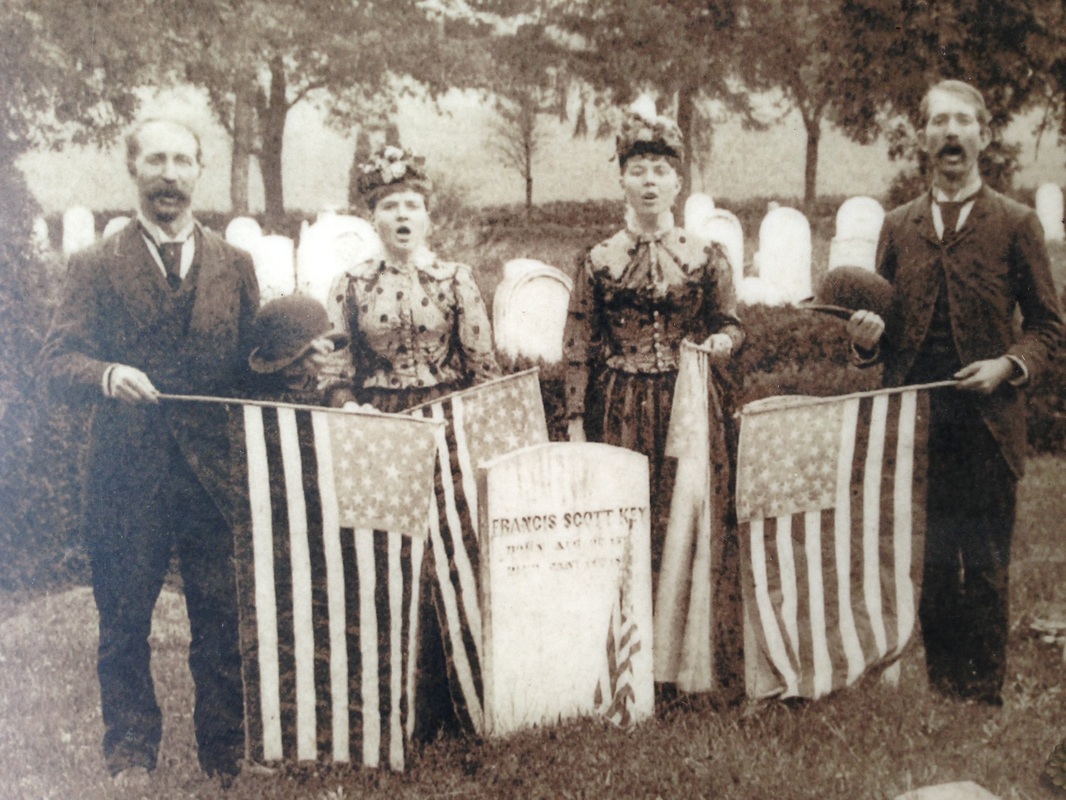
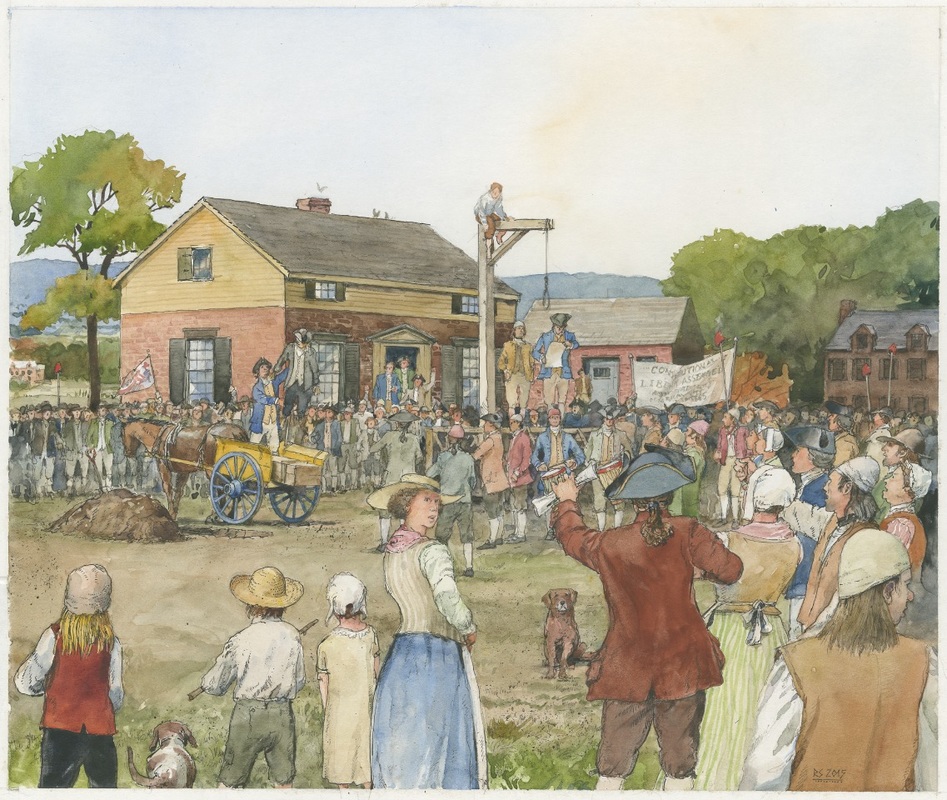
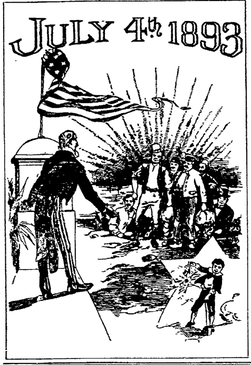
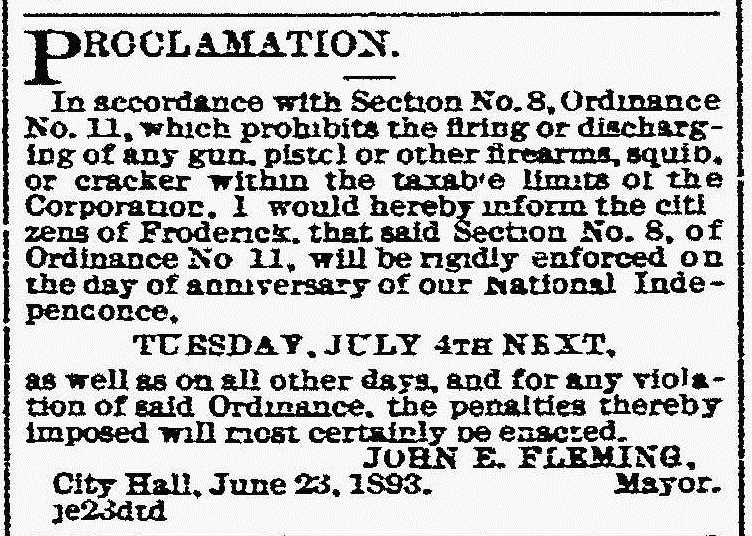
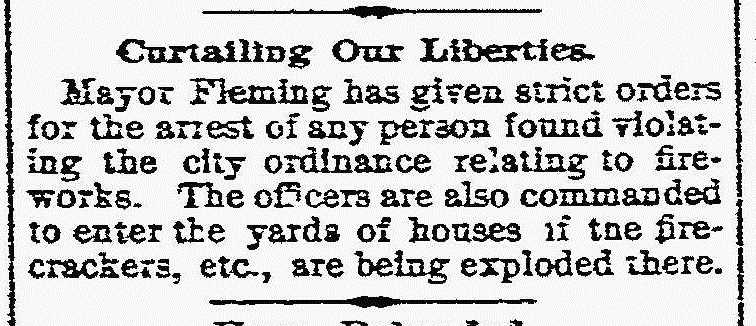
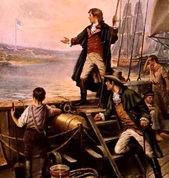
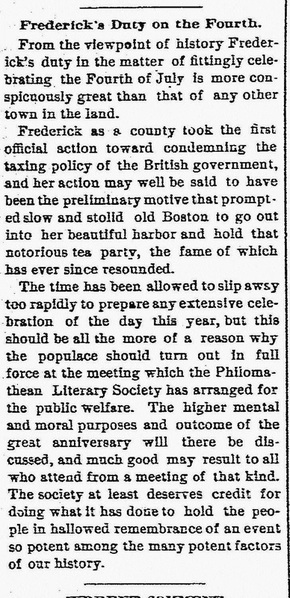
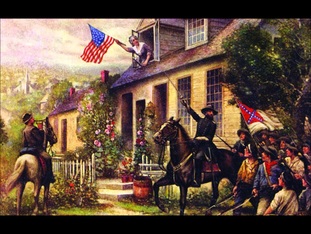
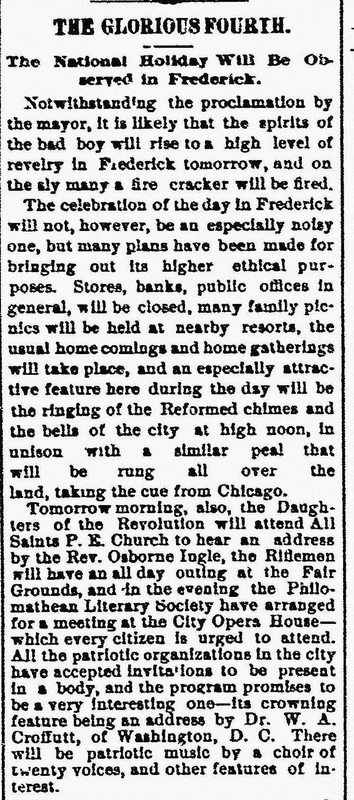
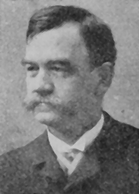
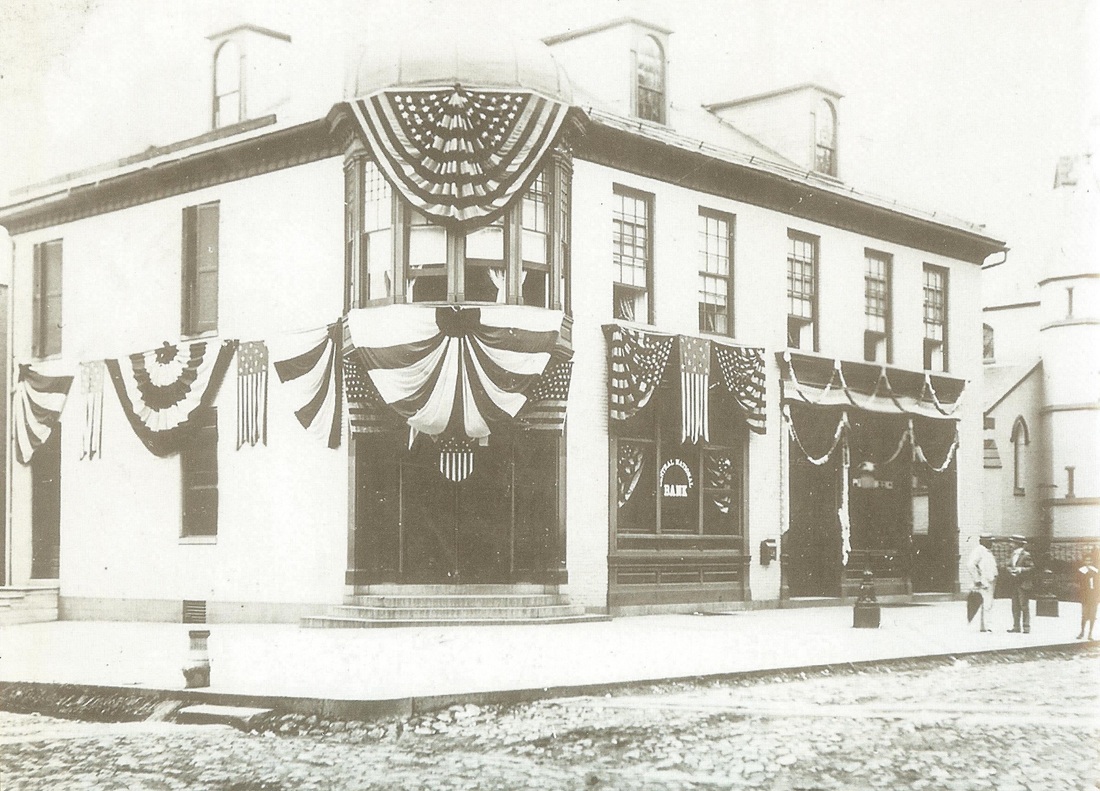
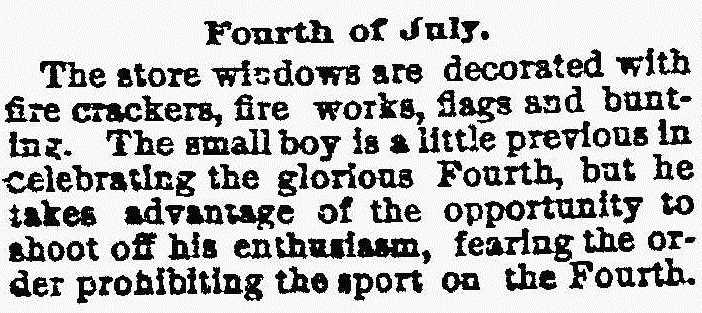
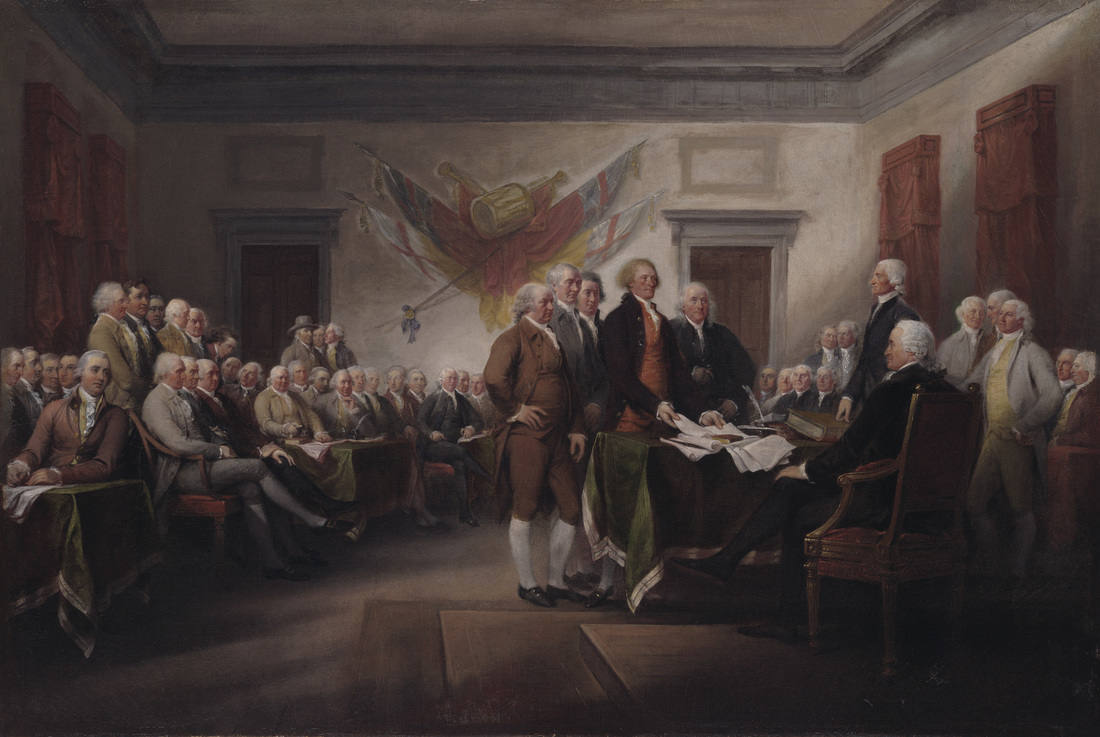

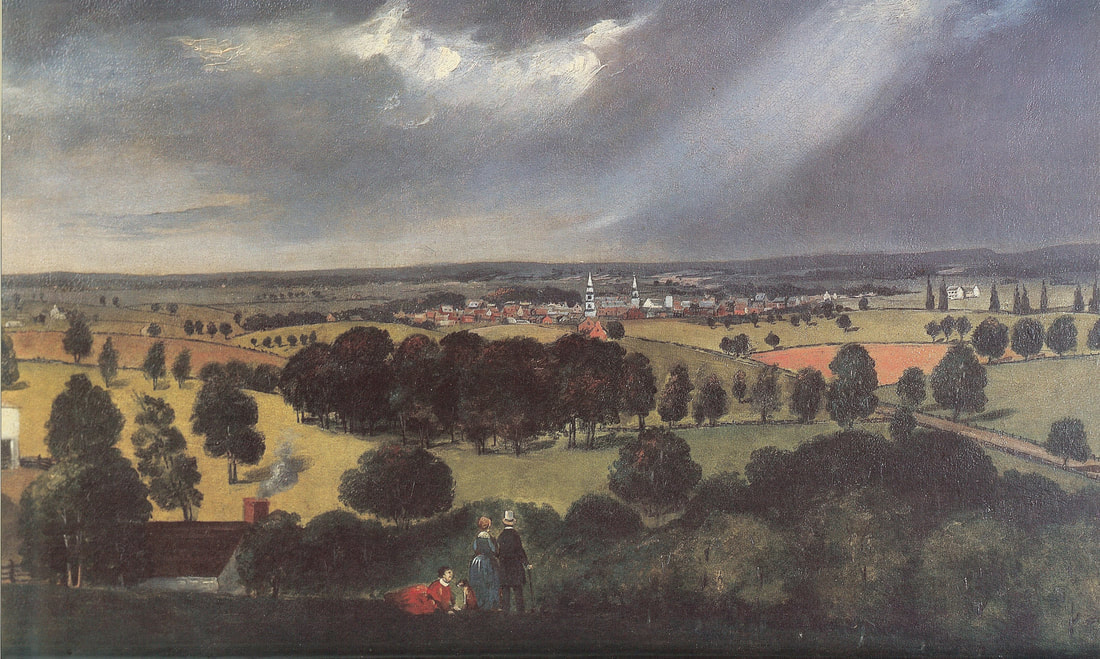

 RSS Feed
RSS Feed